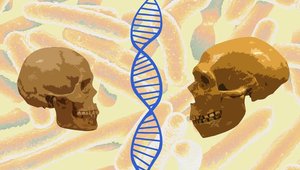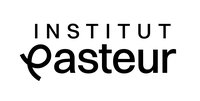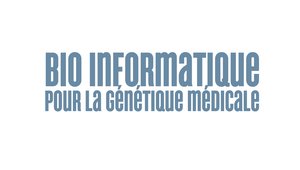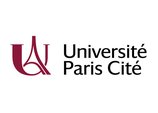Genetics and Genomics: The Secrets of DNA
Catégories
Autour du cours3 juin 2024

Genetics is the study of genes and their role in heredity. Genes are segments of DNA (deoxyribonucleic acid) that contain instructions for the development, function, growth and reproduction of organisms. Genetics is mainly concerned with the way in which traits (such as eye colour, height or predisposition to certain diseases) are passed on from generation to generation. In the Human Population and Evolutionary Genetics MOOC, from the Institut Pasteur, you will discover the contribution of genetics to the study of migrations and human adaptation to extreme conditions. More than two decades after the human genome was sequenced, a vast amount of population genomic data has been generated, revealing human genetic diversity with unprecedented detail. This data has enhanced our understanding of human demography, global dispersion, and population interbreeding. Ancient DNA studies have shown that Neanderthals and Denisovans contributed to the genomes of modern non-African populations. Population genetics has also clarified how natural selection has shaped human genetic diversity, identifying genes responsible for the morphological and physiological differences among current human populations. This MOOC aims to provide fundamental knowledge of population genetics applied to humans, illustrated with numerous examples.
End of registration: October 10, 2024
Genomics, on the other hand, is a more recent discipline that focuses on the study of genomes, i.e. all the genetic material of an organism or cell. Genomics uses advanced technologies to sequence, analyse and interpret entire genomes.
In the Université Paris Cité's MOOC BiG - Introduction to BioInformatics and Genomic Medicine, you will learn about the applications of genomics in the clinical genetics of rare diseases and cancers (oncogenetics). Specialists in genetics, genomics and informatics will explain the bioinformatics aspects involved in producing and interpreting data from high-throughput sequencing (HTS), or next-generation sequencing (NGS), a set of technologies that has transformed genetics and genomics research. By reading millions of DNA fragments in parallel, these technologies enable large quantities of DNA to be sequenced quickly and efficiently, playing an increasingly important role in the diagnosis of genetic diseases. As genomic medicine and NGS require a wide range of skills, you will be given the opportunity to choose your own path through the MOOC according to your profile and learning objectives: beginner, health professional, bioinformatics pipeline designer, bioinformatician.
End of registration: November 30, 2024
Articles liés
5 raisons de s’inscrire au MOOC « Résilience et collectivités territoriales »
Catégories
Autour du cours5 raisons de s’inscrire au MOOC « Éducation inclusive : ressources numériques adaptées pour la classe »
Catégories
Autour du cours5 raisons de s’inscrire au MOOC «Les précarités alimentaires»
Catégories
Autour du cours







